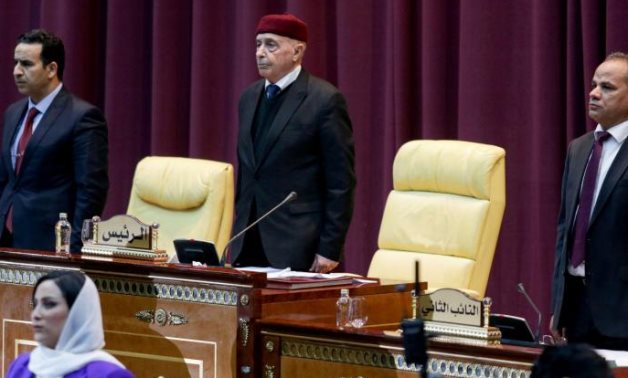
Aguila Saleh, Libya's parliament president, speaks during the first session at parliament headquarters in Benghazi, Libya April 13, 2019. REUTERS/Esam Omran Al-Fetori
CAIRO - 10 March 2020: Speaker of Libya's House of Representative, Aguila Saleh arrived at the parliament on Wednesday to resume the parliament session to grant confidence to the national unity government.
Saleh asserted that Prime Minister-designate of the new Government of National Unity (GNU), Abdel Hamid Al-Dbeibah can present the full formation of the government with no vacancies.
Dbeibah was accused of offering bribes to participants in the political dialogue conference, which was held in Tunis in November 2020, to vote for him, according to a report by UN experts. The report raised a state of confusion in the Libyan political scene, amid calls to postpone the session of granting confidence to the recent government until investigations are concluded.
Meanwhile, Libyan Prime Minister-designate confirmed, in a recorded speech, he addressed to members of the Libyan Parliament before the session of the Council, he would work to solve economic and health problems, stressing that the interest of Libya should prevail over private accounts.
On 7 March, Dbeibah handed over the recent formation of the new government to the Presidency of the Libyan Parliament.
The Media Office of the Libyan Unity Government said that Dbeibah had submitted the ministerial formation per the road map and the procedures specified in the political agreement before holding the confidence-granting session scheduled for in Sirte.
Comments
Leave a Comment